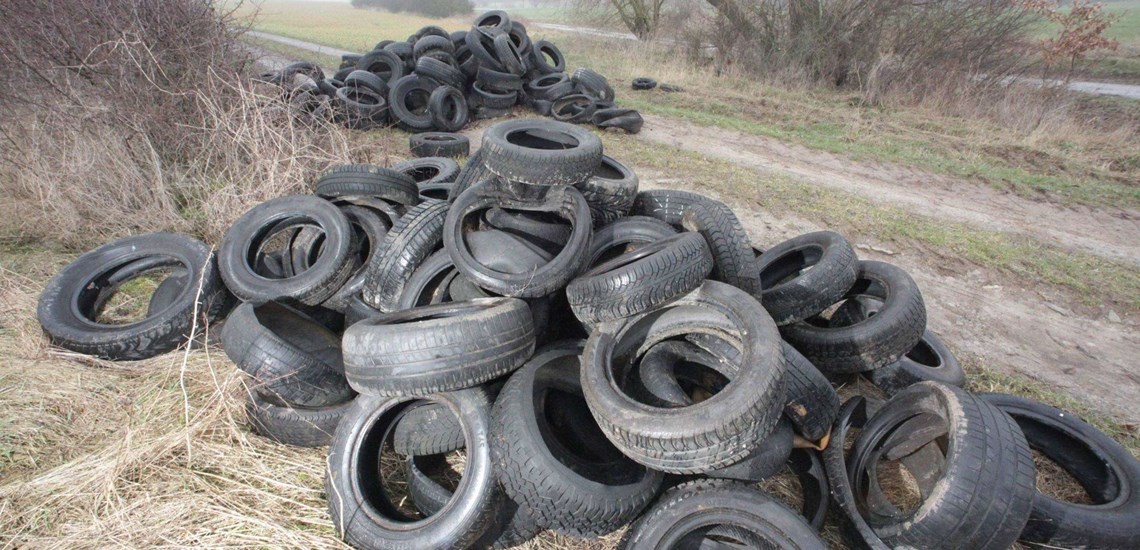Recycling of used tyres and rubber must be expanded to deal with waste tyre issues
German Committee Calls for Legislation
For anyone who has ever Googles “Altreifen recycling” in the news tab, it will come as no surprise that Germany has a widespread waste tyre flytipping problem. In fact, if readers refer back to our “German” issue of Tyre & Rubber recycling, they will see that the issues of tyre recycling in Germany are not a new problem.
A recent report In Germany claims that there is a lack of legal and investment security in order to maintain and further expand the existing capacities for the recycling of tyres and rubber. The BVSE committee for the recycling of tyres and rubber warns against this in its recently published position paper.
“Unfortunately, the recycling of tyres and rubber is becoming increasingly difficult due to legal barriers. Especially for the marketing of the high-quality products that result from tyre recycling, ever higher hurdles in terms of waste and materials law are being built up, ” said committee chairman Bernd Franken.
What particularly annoys the industry companies, however, is the sale of used tyres to non-certified market participants. “You shouldn’t be surprised if there are press or police reports almost every day that record old tyres dumped in the environment. This is a phenomenon that has not just appeared, and we expect countermeasures to be taken more vigorously than before, ”emphasises Bernd Franken.
Selling tyres to certified specialist companies that actively seek to avoid waste through pre-sorting and passing on, for example to retreading, on the other hand, would completely eliminate the effect of the grey market tyres.
In the opinion of the BVSE committee, practical solutions must be found for securing and further expanding high-quality recycling channels in Germany.
The BVSE relies on an open dialogue with all market participants – the ministries, authorities, associations, manufacturers and processors – and is not afraid to give a substantive impetus with its own suggestions.
The BVSE Tyre and Rubber Recycling Committee is calling for an effective legal framework in the form of a waste tyre ordinance. Examples from the areas of waste wood and waste oil show that such ordinances lead to clear regulations and uniform structures nationwide; this will generate investment security, stabilise markets and promote the politically desired circular economy.
“We are of the opinion that a statutory regulation would have clear advantages over extended manufacturer responsibility or a tax-based regulation. With a handover certificate, you could establish a verification procedure on a simple basis, ”emphasises Franken.
In the opinion of the BVSE committee, the data that it considers to be invalid should also be addressed. Existing data on volume and recycling volumes should therefore be checked and, if necessary, corrected. In particular, the export volumes recorded so far would have to be carefully examined.
The position paper sees it as an important point to focus on the topic of design for recycling in tyre manufacture. New tyres are to be designed in such a way that no problems arise during collection, sorting and recovery, especially recycling. In this context, the BVSA paper also refers to negative aspects in the recycling of self-sealing tyres, which cannot be recycled together with conventional tyres, and tyres that contain batteries.
The BVSE Tyre and Rubber Recycling Committee expressly does not want the position paper to be understood simply as a catalogue of demands for others. It is convinced that with the large number of active market participants who are already members of the BVSE today, it has the necessary competence and experience to be able to make a substantial contribution to processing and solving the challenges described above.




















